Upgrading to a glass door for shower is one of the most requested bathroom remodel choices in 2025. Homeowners want something stylish, modern, and practical. A shower with glass doors looks brighter, feels larger, and increases home value. Unlike shower curtains, these doors prevent water from spilling across the bathroom floor.
In terms of cost, the average glass shower door installation is about $946, with most projects ranging from $532 to $1,376. The final price depends on the size, style, and type of glass you choose.
This guide explains everything you need to know: cost breakdowns, type comparisons, DIY vs. professional installation, design ideas, trends for 2025, cleaning and care tips, and common FAQs.
Glass Door for Shower Base: Costs & Key Facts (2025 Update)
What is the average cost to install a glass shower door?
- The average glass shower door cost for installation is approximately $946.
- A framed shower door costs between $400 and $1,100.
- Shower door installation cost for frameless doors is higher, ranging from $600 to $1,900.
- Fully custom shower doors can cost up to $3,300 or beyond, depending on design and materials.
What factors influence final pricing?
- Glass thickness – Heavier glass increases the price, as thicker glass provides better durability and a more luxurious feel.
- Type of door – Whether you're choosing framed, sliding, hinged, bi-fold, or frameless doors, the design directly impacts the cost of bathroom shower doors.
- Hardware – Special finishes like matte black or brushed gold will raise the price, giving your bathroom a more modern and upscale appearance.
- Labor cost – Installation typically costs around $60 per hour, with the process taking 2–4 hours. You’ll need to account for this when calculating total expenses.
- Custom shaping – Costs increase for neo-angle doors, corner layouts, or unusual openings, especially if you want a unique design. If you plan to purchase a custom option, expect a premium price for specialized work.
Is professional installation worth it?
Yes. Installing a shower glass door is trickier than it looks. Misaligned doors often leak, and poor sealing can lead to damage in walls or floors. Shower doors for showers that aren't installed correctly may not open and close smoothly, leading to more issues over time. A professional shower glass door installation adds upfront costs, but it ensures a secure fit, protects your warranty, and helps you avoid costly repairs down the road. Doors are a great investment, and proper installation is key to maximizing their lifespan.

Choosing the Right Glass Shower Door Type
Quick Visual Comparison Table
| Type | Typical Cost (Installed) | Key Features |
|---|---|---|
| Framed | $400–$1,100 | Budget-friendly, aluminum frame, thinner glass |
| Semi-Frameless | $500–$1,550 | Partial framing, cleaner look |
| Frameless | $600–$1,900+ | Thick glass, open design, modern appeal |
| Custom Frameless | $1,400–$3,300 | Made-to-order, specialty hardware |
| Shower Screen | $300–$1,000 | Fixed glass panel, walk-in style |
What shower door styles are available in 2025?
- Framed shower doors – Affordable and durable, these doors consist of a strong aluminum frame that adds stability. If you're looking for a budget-friendly option, this is a solid choice.
- Frameless shower doors – These doors offer a sleek, open design with thicker glass for a modern, minimalist look. While they can be more expensive, they provide a clean shower experience and are highly sought after for contemporary bathrooms.
- Semi-frameless – A great balance between framed and frameless, these doors consist of partial metal framing for added support while maintaining a cleaner, more elegant appearance.
- Sliding doors (bypass doors) – Perfect for smaller bathrooms, sliding shower doors save space by gliding open, making them ideal for tight spaces where a swinging door wouldn’t fit.
- Bi-fold shower doors – These doors fold inward, making them an excellent choice for tight bathrooms with limited space. They allow easy access while minimizing the need for swing space.
- Pivot/hinged doors – Offering a classic, swinging design, these doors require more clearance space to open. However, they give a traditional aesthetic and are easy to operate.
- Shower screens – Fixed glass panels, often used for walk-in showers, provide an open and airy feel. They are ideal for those who prefer a more spacious look in their bathroom. If you want a minimalist and clean shower, shower screens are a top recommendation.
Which type is best for small bathrooms?
- For smaller bathrooms, sliding doors and bi-fold doors are the best options. Sliding shower doors glide open along a track, saving valuable space that would otherwise be taken up by a swinging door. This makes them perfect for tight spaces. Bi-fold doors fold inward when opened, allowing you to access the shower without needing extra room for the door to swing. These space-saving designs are ideal for bathrooms with limited clearance.
- On the other hand, pivot or barn-style shower doors require more clearance to open and close, making them less suitable for compact bathrooms. These types of doors work better in larger bathrooms where space isn’t as much of a concern. So, if you're dealing with a smaller bathroom, sliding or bi-fold doors are the most practical and space-efficient choices.
Types of glass materials
- Clear glass – Brightens up the space and makes it feel larger but requires frequent cleaning to avoid water spots.
- Frosted glass – Provides privacy, hides water stains, and is easier to maintain than clear glass.
- Patterned or textured glass – Adds a decorative touch while offering privacy and letting light through.
- Low-iron glass – Ultra-clear with no green tint, offering a high-end look but comes at a higher cost.
Case Example – Clear vs. Frosted
- Clear glass – Makes small bathrooms feel bigger by allowing light to pass through, creating an open, spacious feel. However, glass doors for showers with clear glass show water spots and fingerprints easily, requiring frequent cleaning.
- Frosted glass – Easier to maintain as it hides water stains and smudges. It also provides more privacy, making it a great option for shared or guest bathrooms where low-maintenance solutions are preferred.

Planning & Preparation Before Installation
How do you measure for a shower glass door?
Measure carefully for:
- Opening width at top, middle, and bottom – Since walls are rarely perfectly square, it’s important to measure the opening at multiple points (top, middle, and bottom) to ensure accurate sizing. This helps account for any irregularities in the wall structure and ensures the door will fit properly.
- Height of the space – Measure from the floor to the ceiling to determine the height of the space available for the shower door. Ensure there are no obstructions like shower heads or shelves that might interfere with the installation.
- Wall support – Glass doors, especially heavier frameless ones, require solid wall support to securely attach the hinges. Use a stud finder to locate studs in the wall, as these are necessary for anchoring the door’s hardware. Be sure the support is sturdy enough to bear the weight of the door.
What structural requirements should you check first?
- Reinforced walls for heavy glass – If you’re installing a glass door for shower with heavier or frameless glass, ensure that the walls are strong enough to support the weight.
- Waterproof backing on shower walls – Proper waterproofing is crucial to protect your walls from water damage. Ensure that the shower area has a waterproof backing like cement board or a vapor barrier to prevent mold and mildew growth behind the walls, especially around the areas where the glass door will be installed.
- Level floors to prevent stress on glass edges – Uneven floors can lead to additional stress on the edges of your glass shower door. This could cause cracks or affect the functionality of the door. Before installation, check that the floor is level to ensure a secure and smooth installation.
Bathroom layout considerations
- Make sure the door can swing open fully – Ensure that the door has enough space to open without obstruction, especially for swing-style doors. This is crucial for both accessibility and ease of use, as cramped space can make it difficult to enter and exit the shower comfortably.
- Check clearance for toilets, sinks, and towel racks – Verify that the door’s swing or slide path won’t interfere with nearby fixtures. Adequate clearance is essential to prevent damage to the door or bathroom fixtures and ensure smooth, hassle-free operation.
- For walk-in showers, ensure enough drain slope to prevent leaks – The floor of your walk-in shower should slope toward the drain at a slight angle to encourage proper water flow. This slope prevents water from pooling, which can lead to leaks and water damage in the bathroom. Proper drainage is vital to maintain a clean and dry environment.
Checklist Before Installing a Glass Shower Door
✔ Correct measurements
✔ Stud placement confirmed
✔ Waterproof surround
✔ Enough clearance space
✔ Plumbing layout checked

Hardware & Accessories That Make the Difference
What hardware finishes are trending in 2025?
- Matte black – modern and bold.
- Brushed gold – elegant, upscale.
- Chrome & stainless steel – timeless, easy to match.
Essential parts for preventing leaks
- Door sweeps – flexible strips along the bottom.
- Seals and gaskets – fill small gaps.
- High-quality caulking – keeps water inside the shower enclosure.
Custom vs. Standard Hardware
Standard hardware works well for most homes. But custom handles, towel bars, or oversized hinges are worth adding if the glass is thicker or if you want design flexibility.
💡 Pro Tip: Match the hinge strength to glass weight for safe, long-lasting function.
Professional vs DIY Installation: Which Should You Choose?
Can you install a glass shower door yourself?
It's possible, but challenging. You'll need tools like a drill, level, suction cups, and safety gear for the installation. While installing it yourself may save $200–$500 in labor costs, small mistakes, like misalignment or poor sealing, can cause leaks and water damage, leading to additional repairs. If you're not comfortable with DIY tasks, hiring a professional might be a safer choice to ensure a proper and durable installation.
When should you hire a professional instead?
Hire a pro if:
- Your shower space is uneven – If the walls or floor are not level, professional installers can make the necessary adjustments to ensure a proper fit. This is crucial for preventing leaks and ensuring the door functions smoothly.
- You’re installing a frameless shower door – Frameless doors require precise measurements and installation due to their heavier glass and minimal support. A professional can ensure the door is securely mounted and aligned correctly.
- You’re remodeling for resale and want insurance coverage – If you're upgrading your bathroom to increase home value, a professional installation guarantees a high-quality job, which can be important for resale. Additionally, professional installation often comes with warranties, providing peace of mind against potential issues down the road.
Cost difference: DIY vs Pro
- DIY cost savings: Installing a glass shower door yourself can save you between $200–$500 in labor costs. However, keep in mind that this savings comes with the responsibility of doing the job right.
- Risks: If mistakes are made during installation, you could risk damaging your bathroom, such as cracked tiles, broken glass, or water leaks that could cause serious damage to walls and floors. These errors might end up costing more in repairs than professional installation.
- Pro install: While professional installation has a higher upfront cost, it offers peace of mind with a reliable, long-lasting result. Professionals bring the experience needed to avoid costly mistakes and ensure your shower door is properly aligned and sealed. This typically results in fewer issues and a longer lifespan for the door.

Maintenance & Lifespan: Keeping Your Shower Glass Spotless
What’s the best way to clean a glass shower door?
- Use a squeegee daily – According to the Environmental Protection Agency (EPA), regular maintenance of shower doors and seals is essential to prevent water damage and mold growth. After each shower, quickly wipe down the glass with a squeegee to remove water droplets and prevent soap scum buildup. This simple habit helps keep the door clear and reduces the need for heavy cleaning later.
- Spray with vinegar-water solution – A mixture of vinegar and water is a natural and effective way to break down mineral deposits and soap scum. Spray it on the glass, let it sit for a few minutes, then wipe it off with a microfiber cloth for a streak-free finish.
- Apply protective glass coatings to resist stains – Consider applying a protective glass coating to repel water and soap scum, making it easier to keep the door clean over time. These coatings create a hydrophobic surface that helps prevent stains and keeps your glass door looking like new.
How long do glass shower doors last?
- High-quality glass doors – A well-maintained glass shower door can last 20+ years, providing long-term durability and functionality. With regular cleaning and care, the glass remains in good condition for years.
- Hinges, sweeps, and seals – While the glass itself may last for decades, components typically need replacement after 5–10 years due to wear and tear. The replacement shower doors need typically includes new seals and hardware to ensure a secure fit and prevent water damage. Timely glass shower door replacement of these parts ensures your door remains efficient and leak-proof over time.
Common issues & troubleshooting
- Leaks: If you notice water seeping out of your shower, check the sweeps, seals, and caulking around your glass door for shower. Over time, these components can wear out or become damaged, leading to leaks. Replacing or resealing them can help maintain a watertight seal and prevent water damage to your bathroom.
- Soap scum: Soap scum buildup is common on glass doors, but it can be prevented with regular cleaning. Use a squeegee after each use to remove water droplets, and apply a vinegar-water solution to break down the buildup. Regular cleaning will help keep your glass shower door looking clear and free from stains.
- Loose handle or hinge: If the handle or hinge of your glass door for shower becomes loose, it can affect the door's functionality. Tighten the screws with the proper tools, but if the issue persists, consider replacing the hardware to ensure smooth operation and prevent further damage.
Trends & Innovations to Watch in 2025
- Frameless designs are the most popular for new remodels.
- Smart glass technology – switch between clear and frosted at the touch of a button.
- Anti-fog coatings – prevent water vapor build-up.
- Eco-friendly glass – low-carbon or recycled.
- Accessible shower glass enclosures – wide entry panels, barrier-free walk-in styles.
Conclusion
A glass door for shower is a smart upgrade for style, safety, and home value. In 2025, most homeowners spend between $900 to $1,500 for installation.
When planning your remodel, focus on:
- Type of glass and frame style.
- Budget and cost range.
- DIY vs professional installation.
- Maintenance plans for long-term clarity.
The right choice depends on your bathroom size, privacy needs, and budget. Start by measuring your space, then compare frameless vs framed styles, and consult with contractors for exact quotes.

FAQ: Glass Shower Door Decisions
1. Do glass shower doors increase home value?
Absolutely, yes! Installing glass shower doors can definitely add value to your home. A clean, modern bathroom is one of the top features that potential buyers look for, and glass shower doors are a key part of creating that polished, high-end look. Unlike outdated shower curtains, glass doors give the space a more open and airy feel, making your bathroom appear larger and more luxurious.
Additionally, glass doors are easier to maintain, which is an attractive selling point for homebuyers. They’re durable, easy to clean, and don’t accumulate mold or mildew as quickly as shower curtains. When it comes to resale, homes with stylish, updated bathrooms tend to sell faster and for a better price. So, if you're planning to sell in the future, adding glass shower doors can be a smart investment that gives your bathroom a modern touch while boosting your home's overall appeal.
2. Which is safer: tempered glass or laminated?
Both types of glass are safe, but they serve different purposes when it comes to safety. Tempered glass is the most commonly used option for a glass door for shower. It’s designed to shatter into small, rounded pieces when broken, minimizing the risk of injury. This makes it a safer choice for shower doors and other areas where glass breakage is a concern.
On the other hand, laminated glass is made by bonding two layers of glass with a plastic interlayer. If it breaks, the glass remains intact, held together by the plastic, which prevents the shards from scattering. This adds an extra layer of safety, particularly for glass doors for showers where minimizing the risk of flying glass is important. While both are safe, laminated glass provides added security by keeping the glass together in case of breakage.
3. What is the easiest type of shower door to clean?
When it comes to cleaning, frameless glass shower doors are often considered the easiest because they have smooth, flat surfaces without any frames where dirt and grime can collect. This makes wiping down the glass a lot simpler. However, they do require frequent cleaning, especially to avoid water spots, soap scum, and mineral buildup, particularly if you have hard water.
Alternatively, frosted glass shower doors are more forgiving. They don’t show water spots or soap scum as easily, making maintenance less frequent. While they may not have the same clear, open look as frameless glass, frosted doors offer added privacy and are easier to keep clean. For those who want a low-maintenance option with privacy benefits, frosted glass could be a practical choice for a glass door for shower, providing both functionality and ease of upkeep.
4. Can shower glass doors shatter?
Shower glass doors rarely shatter, but it can happen under certain conditions. Most often, breakage occurs if the glass is stressed due to poor installation or pressure from hardware that’s not properly aligned. For instance, if the door isn’t securely fitted or the hinges and handles are improperly installed, it could put undue pressure on the glass, causing it to crack or shatter.
While tempered glass used in glass shower doors is designed to break into small, rounded pieces rather than sharp shards, it’s still important to ensure proper installation and use of high-quality materials. Regular maintenance and checking the condition of seals and hardware can also help prevent issues and extend the life of your glass shower doors, reducing the risk of breakage.
5. Are frameless shower doors worth it?
Yes, frameless shower doors are definitely worth considering if you're aiming for a modern, open look in your bathroom. They offer a sleek, minimalist design that makes your space feel larger and more luxurious. While they do come at a higher initial cost compared to framed options, they tend to last longer and require less maintenance over time, making them a worthwhile investment.
In addition to their aesthetic appeal and durability, frameless doors can also boost the resale value of your home. Potential buyers often see them as a high-end feature that adds to the overall modern appeal of a bathroom. If you're planning to sell in the future, a frameless glass door for shower could be an attractive selling point. So, while they may cost more upfront, their long-term benefits make them a smart choice for many homeowners.

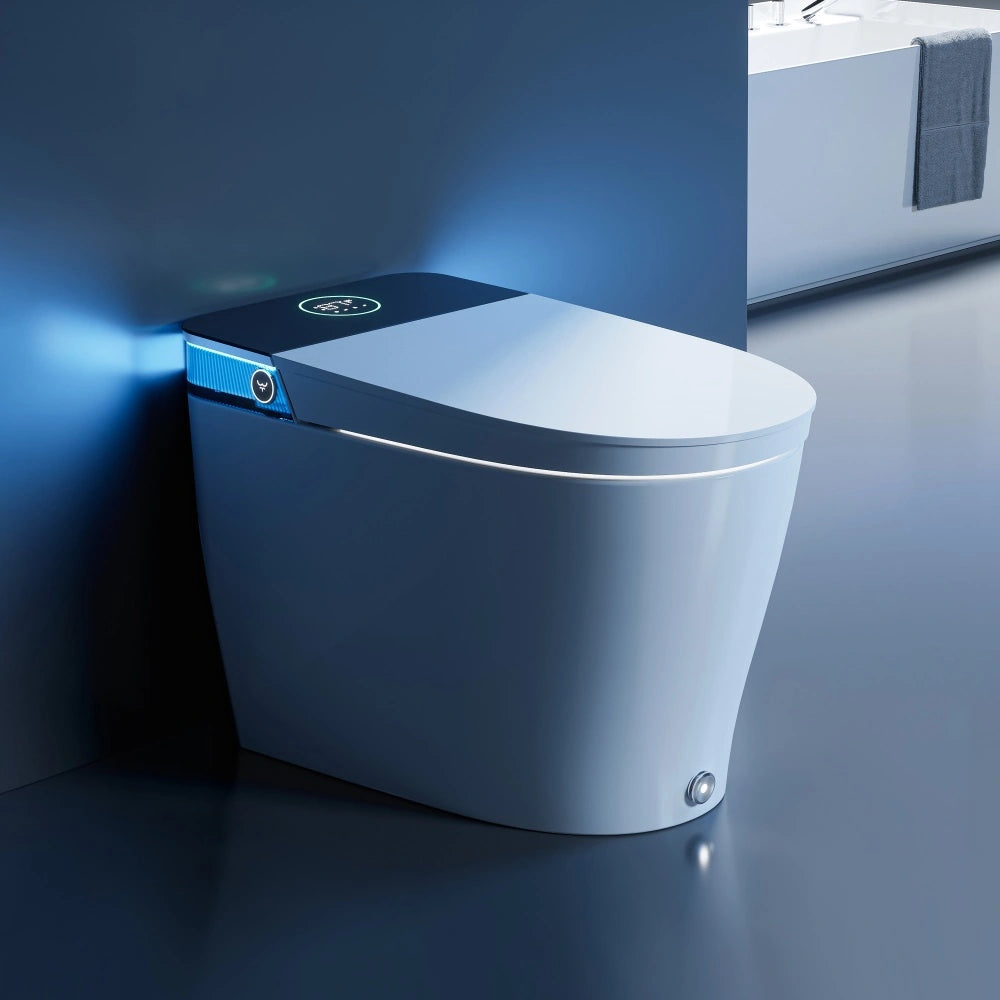
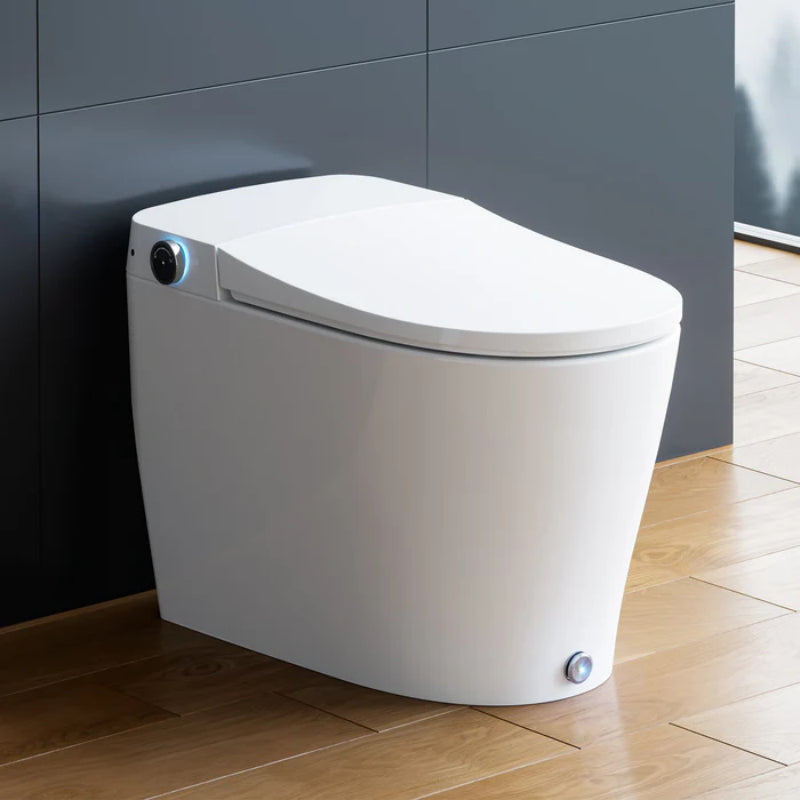
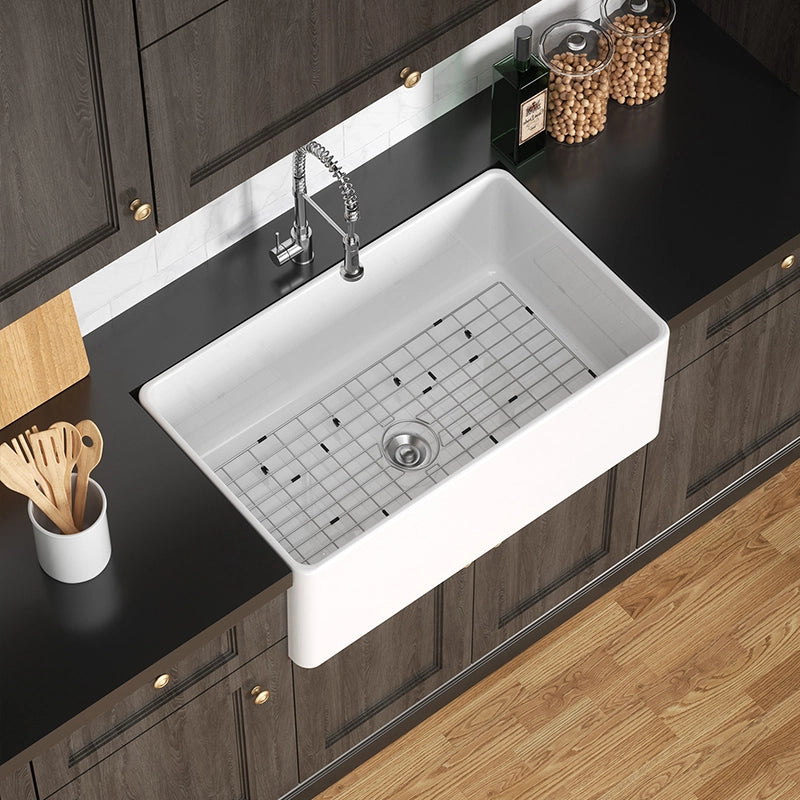
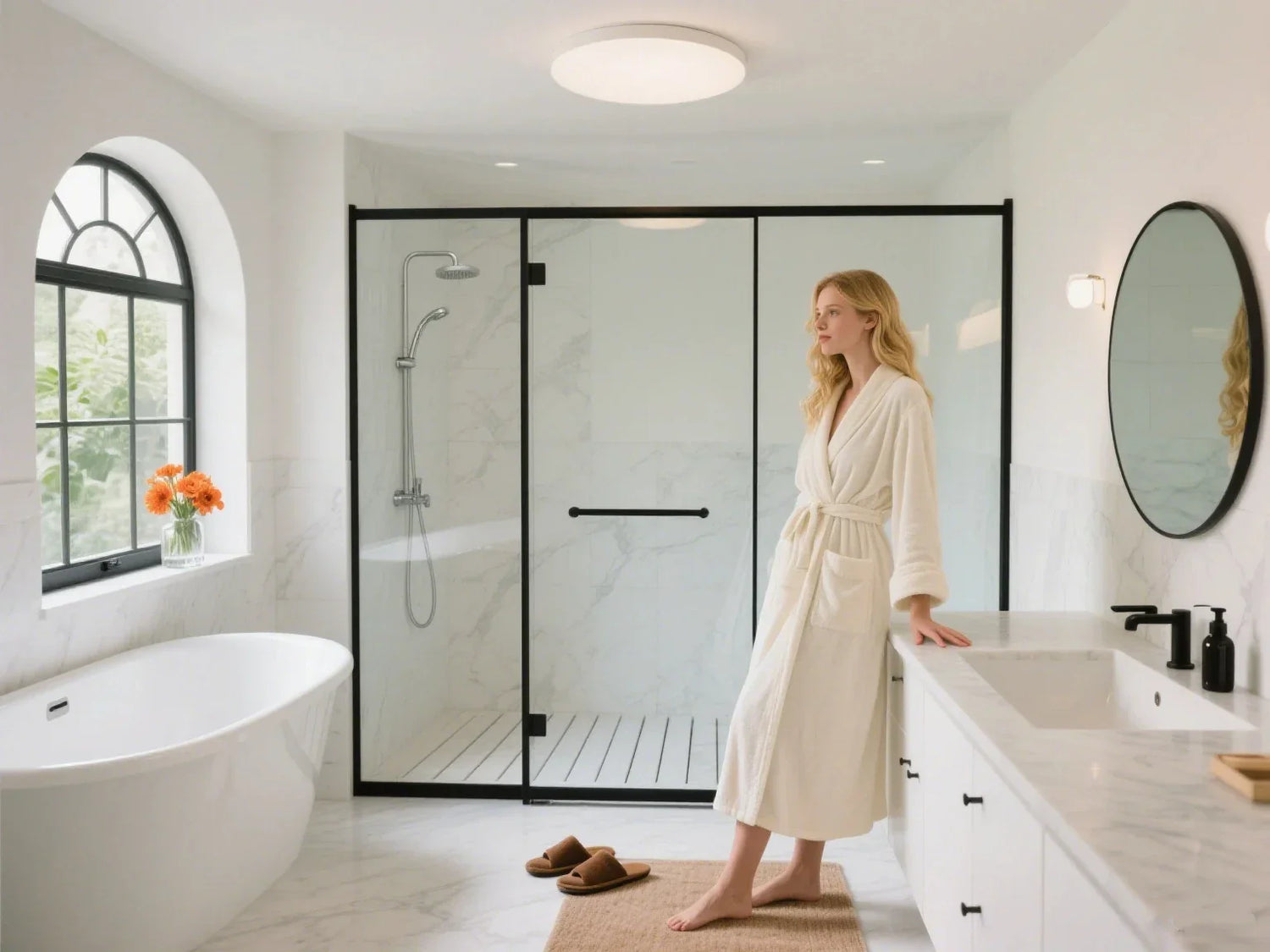
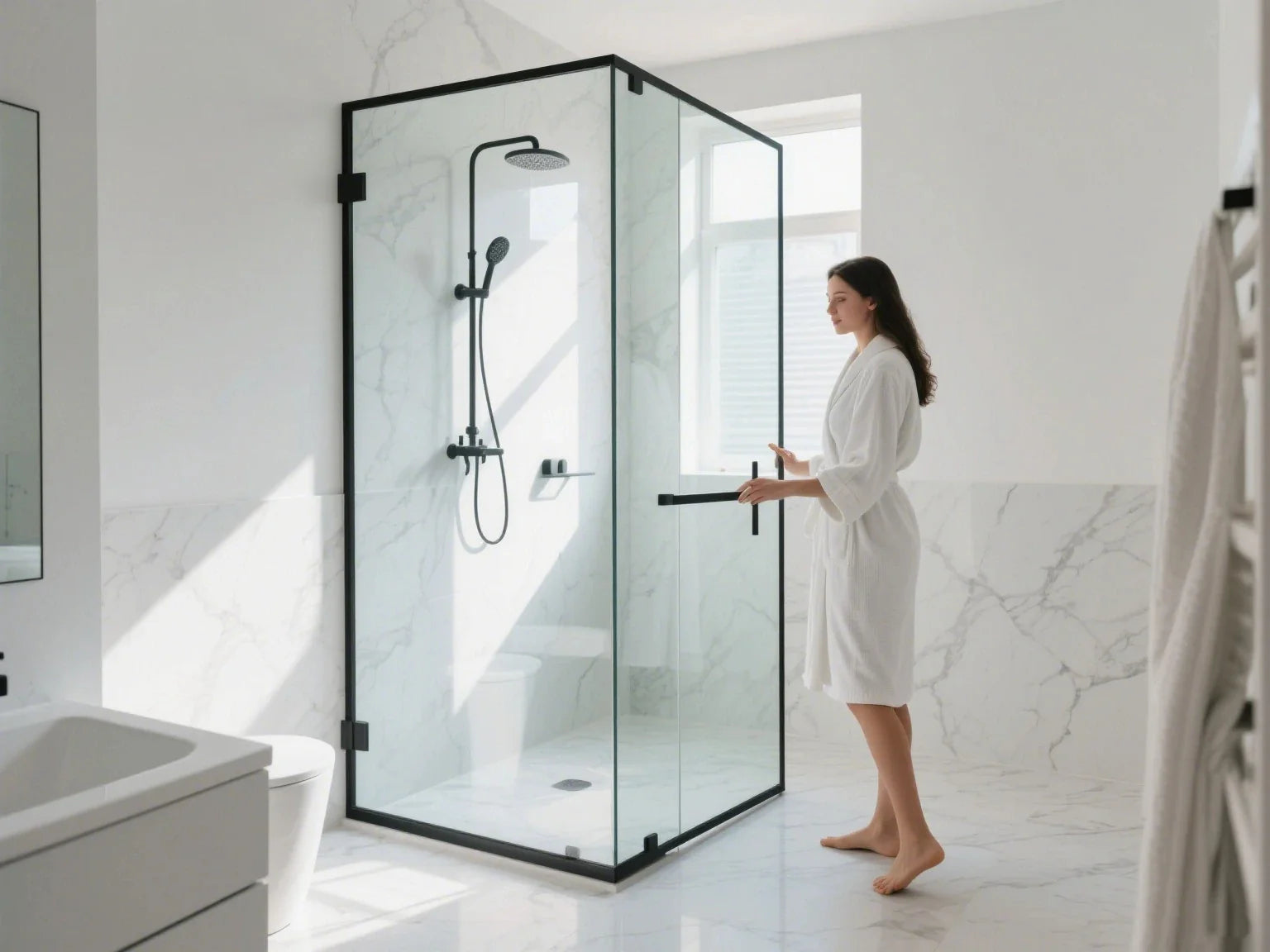
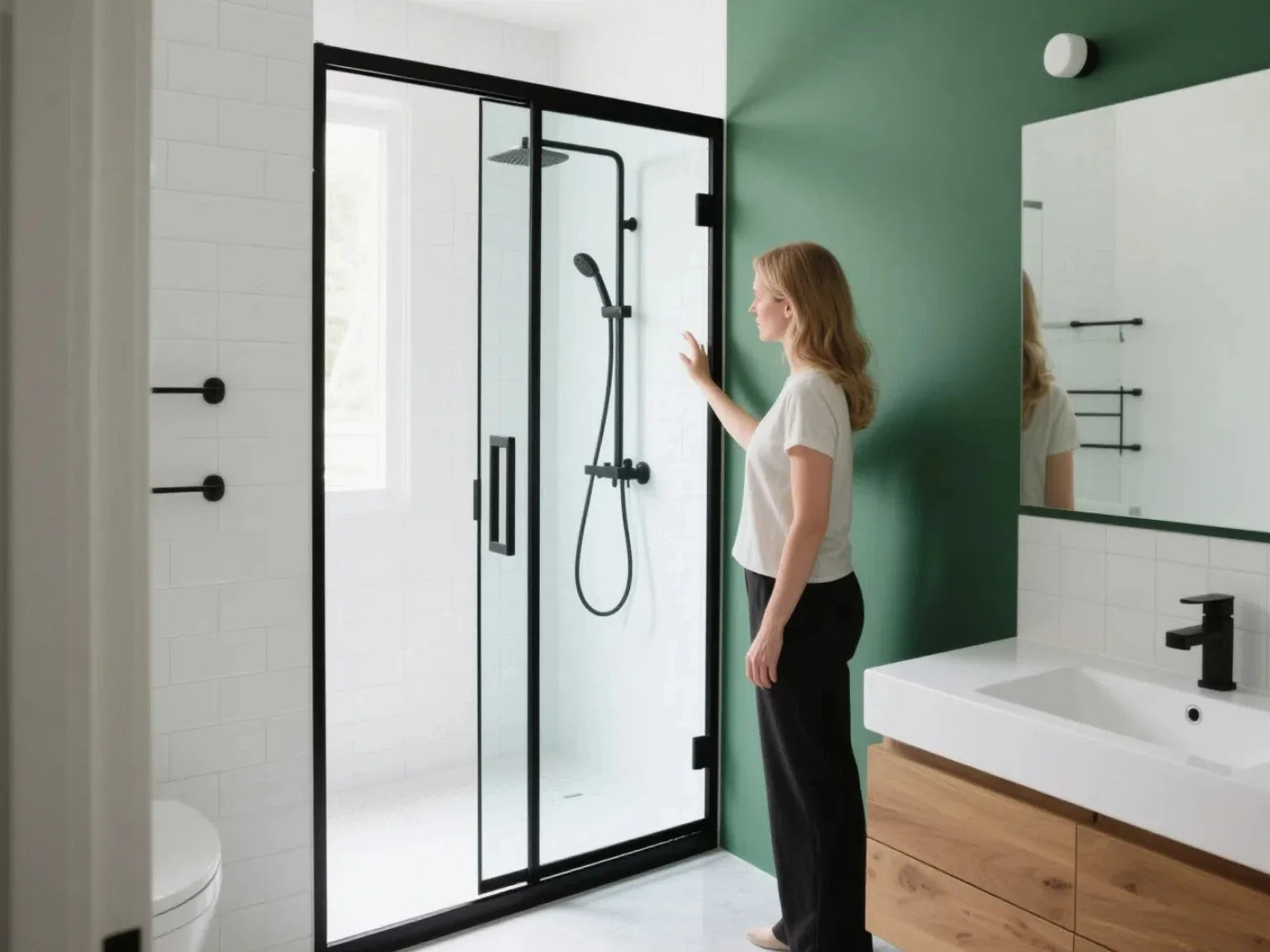

Leave a comment
This site is protected by hCaptcha and the hCaptcha Privacy Policy and Terms of Service apply.